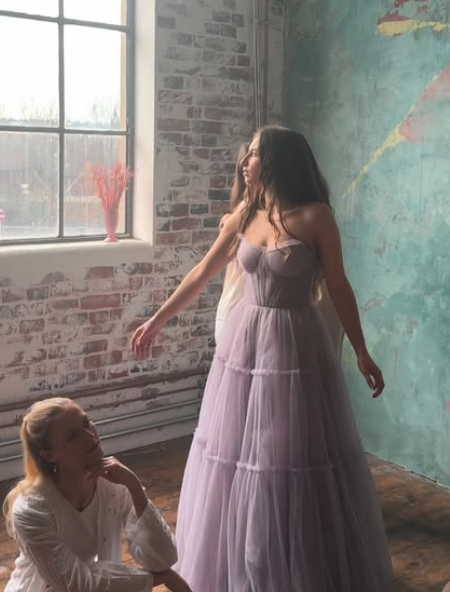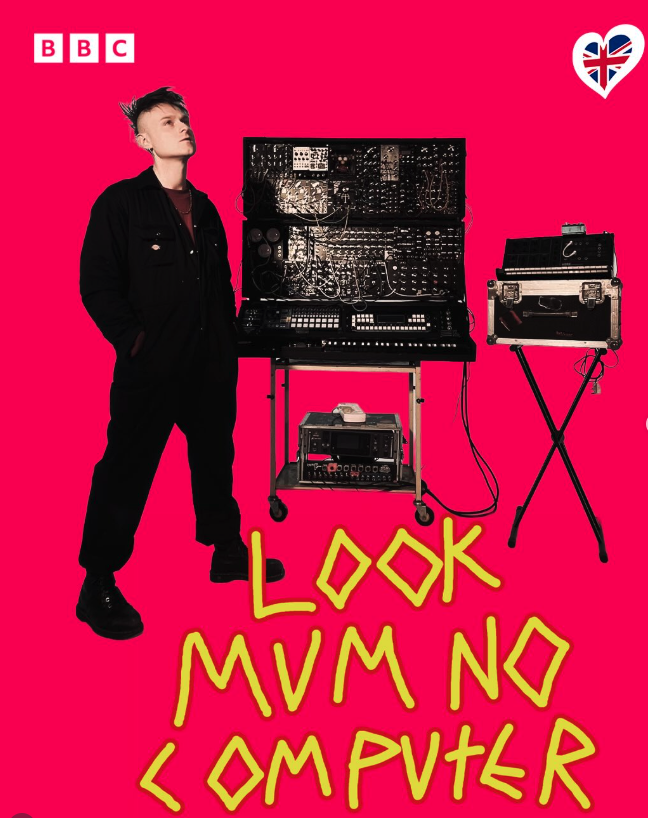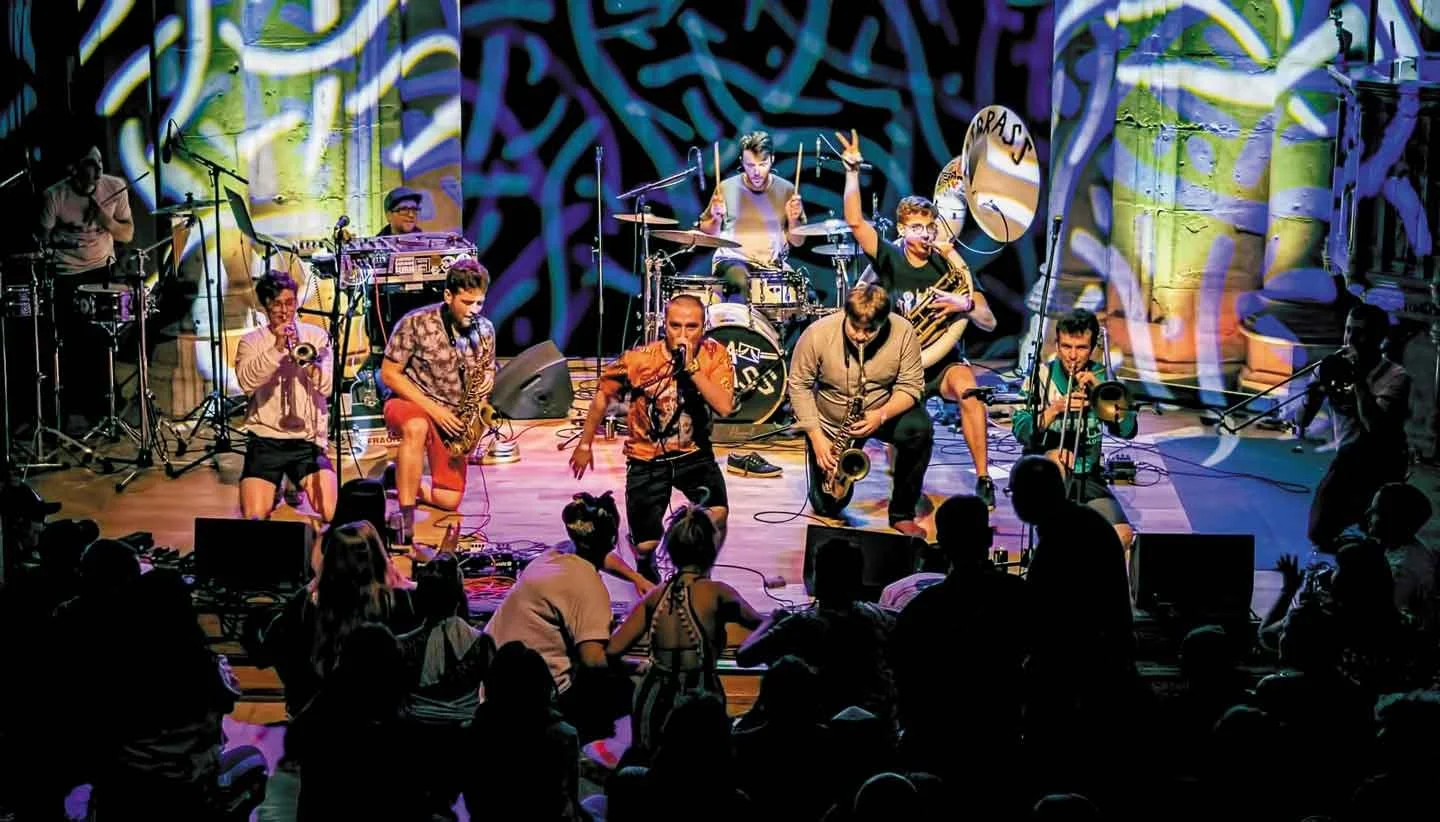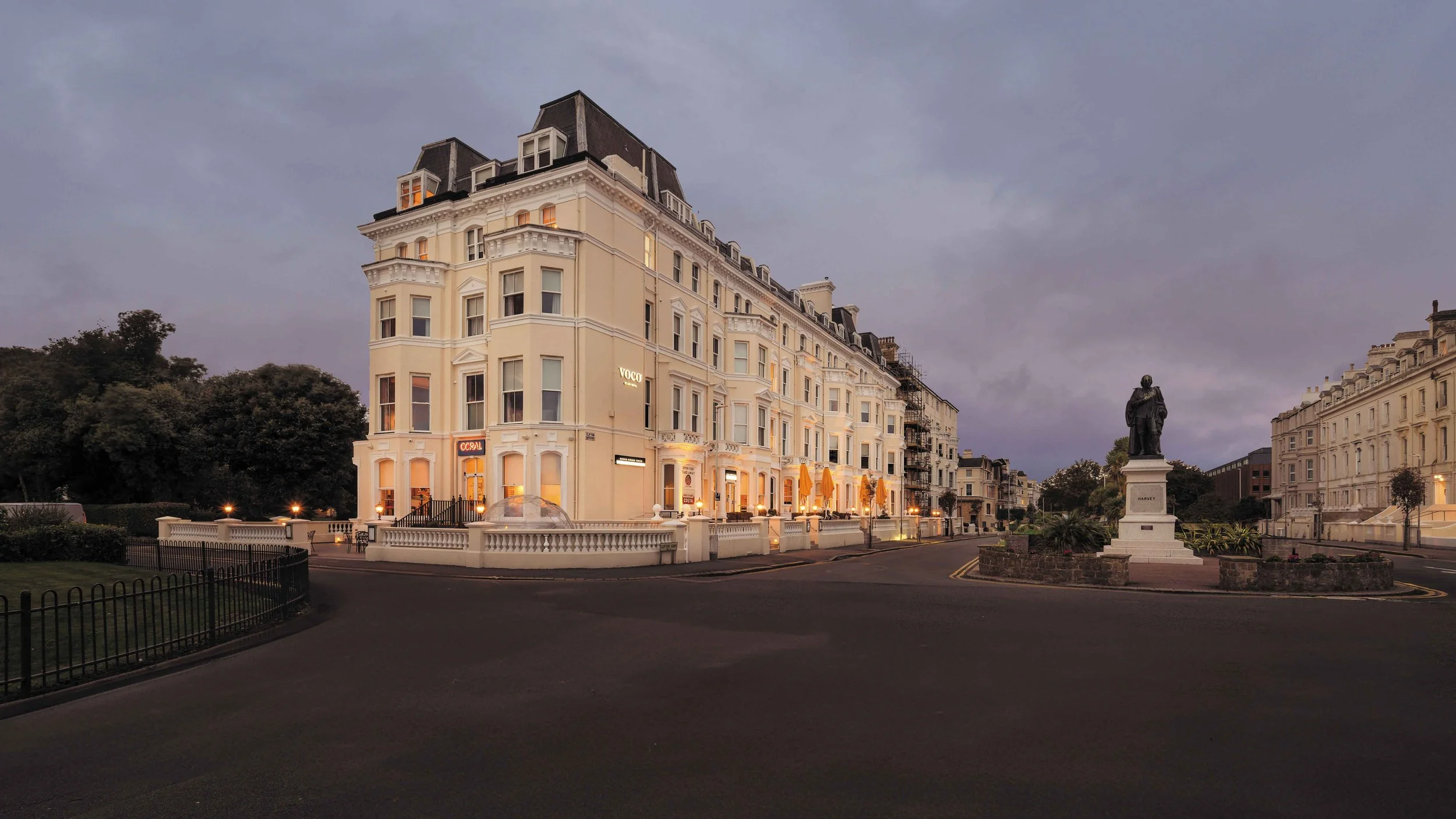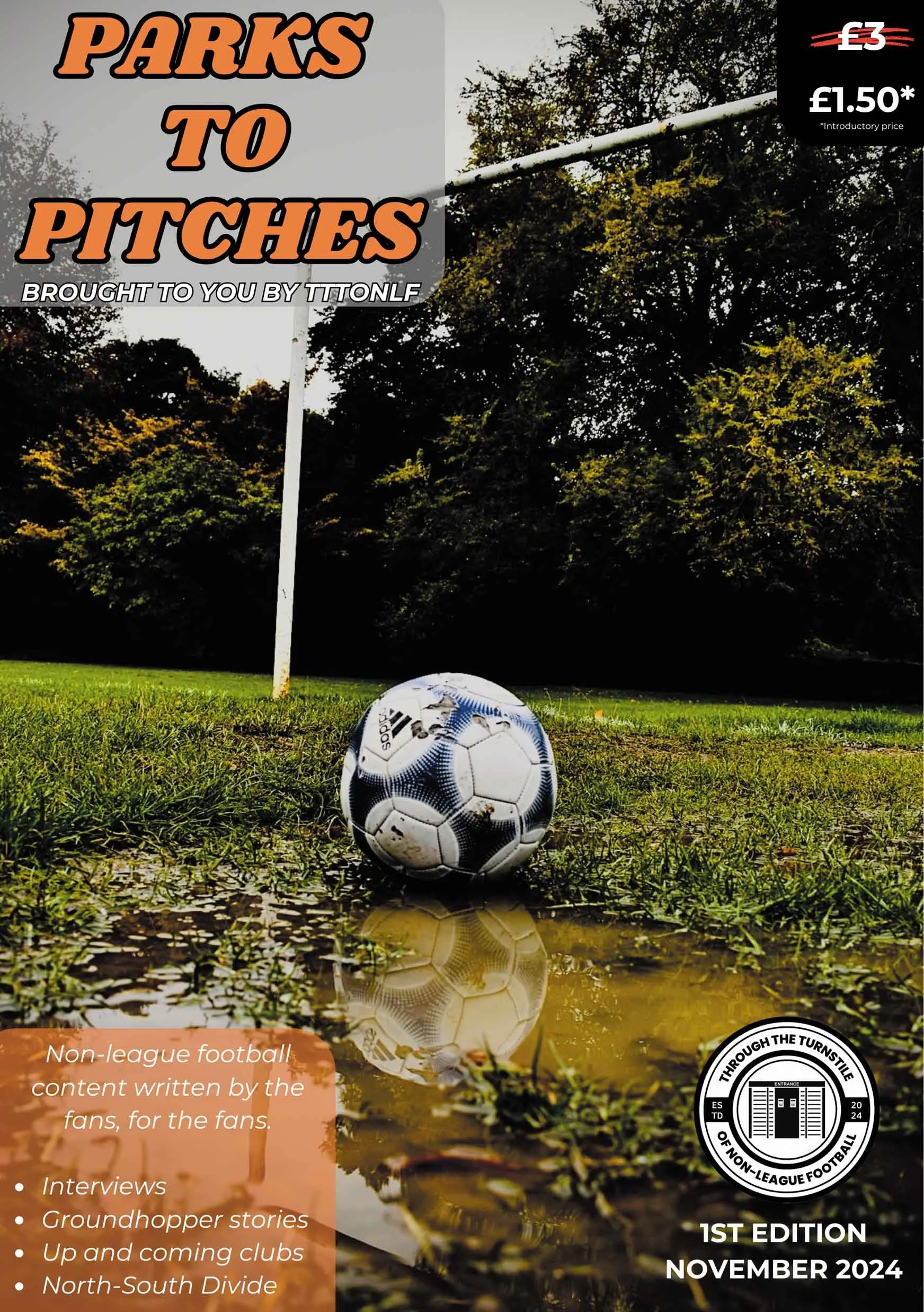EVERYDAY RACISM - CREATING CHANGE
Margate sisters on taking social media by storm and opening up the conversation on racism in the UK, writes Marijke Hall
“Do you have a f**cking passport to get into this country?”
These disturbing words are being shouted at a black train conductor by two white passengers who are being asked to show their tickets.
When the guard challenges them, they accuse him of “playing the black card”.
Natalie Evans is sat in the seats behind and starts filming. She calls them out for being so obviously racist. But it’s ok, one of them has mixed race children, so he’s not.
It’s a retort, one of many, which is used so liberally in everyday life to excuse the inexcusable. But, for Natalie, it’s not a shock.
But this distressing encounter was actually so shocking to others it went viral on Twitter and became the catalyst for Natalie and her sister Naomi, both from Margate, to launch the anti-racism movement Everyday Racism (@everydayracism_).
Their aim? To open up a conversation with friends and family that racism is still happening in the UK and create a space for honest accounts from those affected.
But, unexpectedly to them, it exploded and little more than a year on - they launched in May 2020, two weeks before the murder of George Floyd - they have almost 150,000 followers on Instagram.
It has led to them writing and running training programmes for global companies and launching a book club.
They are also in the process of writing The Mixed Race Experience, which will be published by Penguin early next year.
“I don’t know what we wanted Everyday Racism to be or where we wanted it to go but we just knew that we wanted to start something off the back of that incident on the train,” admits events manager Natalie, 31,
“But never did we think it would grow like this.”
Everyday Racism gives a platform for people to share their own experiences and assists others who are keen to be proactive in being anti-racist - the act of opposing racism and promoting racial tolerance - with bitesized resources.
“We’re like the stepping stone into that journey,” says secondary school teacher Naomi, 37. “We want to encourage people to read and learn, internalise, do the work themselves and go onto other educators who have been doing this work for a lot longer than we have.
“So we do the bitesize. For example, let’s look at white privilege or how to respond to racist comments.”
The sisters say it’s not unusual to hear people claiming not to be racist and even challenging whether it still even exists in this country.
“Anti-racism is essentially coming away from the idea of ‘well, I’m a nice person, I don’t do anything to harm other people, I’d never say anything intentionally racist, so I’m not racist and I’m not part of the problem’,” says Naomi.
“Actually, we’re all part of the problem. We all need to accept that we’re part of a system that marginalises certain groups and some of us have benefitted from that and some of us have been significantly disadvantaged. I think we need to move away from this language of ‘I’m not racist’.
“If you’re not racist, what are you? Just not being racist has not helped anyone so actually let’s be more proactive about it.”
Look at their Instagram page and you’ll see numerous, upsetting examples of prejudice against the black and brown community.
One contributor, Ayo, had armed police point guns at him while on a university field trip to City Airport.
Brenda is followed around shops by staff who suspect she’s shoplifting.
Another, Tanisha, has had a banana skin thrown at her and monkey noises aimed in her direction while crossing the road.
“Anti-racism is essentially coming away from the idea of ‘well, I’m a nice person, I don’t do anything to harm other people, I’d never say anything intentionally racist, so I’m not racist and I’m not part of the problem”
Go back a couple of decades and the sisters were navigating their own way through life in a white majority seaside town.
“We were very much in the minority and we were very aware of that from quite a young age,” says Naomi. “One of my earliest memories was about my hair and the dinner ladies at primary school touching it and saying it’s like candy floss. I then spent the next 20 years of my life trying to get straight hair so I could assimilate.
“For me, my childhood did very much feel like I was ‘othered’ a lot.”
Natalie agrees that there was a mix of overt and covert racism while growing up.
“I think some people knew exactly what they were doing, but if I’m honest I’d rather that because then I know where I stand. The covert is much more dangerous because it’s so subtle, like the micro-aggressions that you get and still get to this day.
“They’re so small and polite from well-meaning people so you don’t tend to realise that it’s happening or you come away from a conversation thinking ‘what the hell was that?’.
“So it’s hard to address it because it’s so subtle.
The sisters both moved away from Kent but have since come back to a changed cultural landscape in Margate, a shift they believe was caused by Turner Contemporary opening in 2011 and more creatives and people moving to the area from London.
“Now it’s like living in a different place in some ways,” says Naomi. “Obviously some of the same issues are still here, it’s just there is more of a mix of people, it’s a lot more diverse than it was.”
It’s a town which has seen such change in the past decade, now often dubbed Hackney-on-Sea, that the siblings admit it is an easier place to live.
They say after the murder of George Floyd, people in Margate took a stand against racial injustice, with Black Lives Matter gatherings held in the town.
“We’ve never spoken so openly about it before,” says Naomi. “It was a real wake up call to people to be like ‘ok, yeah I’m really not doing enough, what can I do?’”
Natalie says it means people are more aware that they might get it wrong - but that it’s ok.
“You might not ask a question in the right way and if you didn’t, and someone finds it offensive, it’s about saying ‘I’m sorry, I need to now go away and learn how I ask that question in the right way that’s not offensive’.
“But another thing we always say is don’t ask your black and brown friends for advice because especially after the George Floyd murder white people were asking ‘how do I do this? What do I do?’ and actually black people are like ‘what, I’m literally just making a cup of tea - I don’t want to talk about this’ which is totally reasonable.
“I think it’s about making sure that who you go to, wants to talk about it and knows about it. Otherwise it’s like going up to a random woman and saying ‘teach me about feminism’.
“So for us, we have opened ourselves up to that and that’s fine. We have created a space where people can ask questions.”
They say when they were then asked about writing a book they initially didn’t know what they could add to the range already out there. They even admit to feeling slightly imposterish against renowned anti-racism experts.
But they fell upon the idea of writing a book about what it’s like growing up mixed heritage.
“So all the things that come with that like being in a mixed race relationship, bringing up mixed race children, having parents that will never understand your identity,” says Naomi. “We thought that’s the book that we probably need to write as we didn't have it.
“When we spoke to our mum about it she was like ‘god, I wish I’d had that book’.”
Perhaps the strongest message from the women, though, is for people to sit up and listen, learn and start showing up, whether protesting, signing a petition or speaking out.
“The more you do it, the more confident you will become. This encourages others to do the same and that is how we start to create real change.”
See www.everydayracism.co.uk and https://www.instagram.com/everydayracism_/?hl=en



